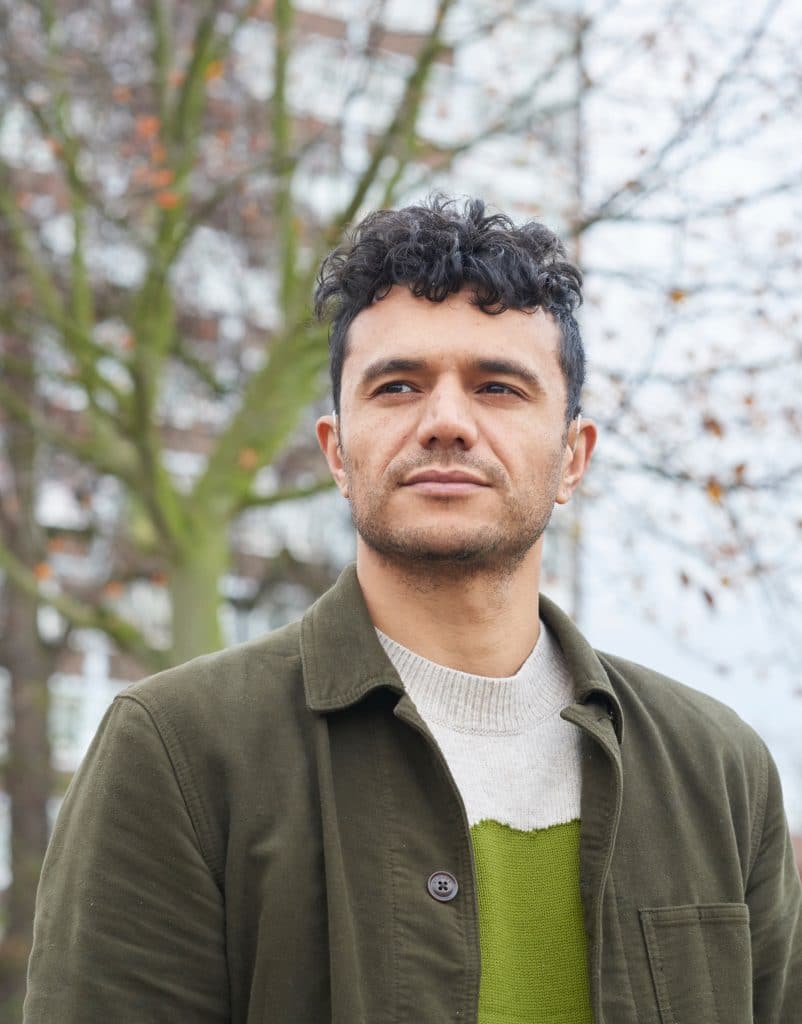

Masterclass with…
Raymond Antrobus, Poet.
Raymond Antrobus FRSL was born in London, Hackney to an English mother and Jamaican father. He is the author of Shapes & Disfigurements (Burning Eye, 2012) To Sweeten Bitter (Out-Spoken Press, 2017), The Perseverance (Penned In The Margins / Tin House, 2018) and All The Names Given (Picador / Tin House, 2021).
In 2019 he became the first ever poet to be awarded the Rathbone Folio Prize for best work of literature in any genre. Raymond is our 2021 Poetry judge.
Be vigilant
Being vigilant in our reading as poets may pay off in our writing as poets, so I want to talk briefly about the Spanish poet Juan Ramón Jiménez and how his work helped me make some decisions in my own writing. I’m a non-Spanish speaker, so the English language translators I’ve relied on are Robert Bly, Mary G. Berg and Dennis Maloney.
On January 16th, 1916 Jiménez was in his early thirties, already an accomplished poet, prose writer and children’s author. He was leaving on a train from Madrid to board a boat at the port of Cadiz, sailing on to New York where he was due to marry.
He begins a poem in his diary:
“How close now to my soul,
What still seems so very far
From my hands!”
Jiménez was in love, a young poet in full visceral yearning mode, a poet influenced by the lyric intensity of Rilke and the French Symbolism of Rimbaud. On his sea crossing journey Jiménez would write some of the most revered poems in Spanish literature. Each of the poems would be dated between January 16th – October 3rd, some of the poems read like a fragmented internal dialogue of a mystic drifting off to sleep. In Jiménez’s imagination, any boundary between land, sky and sea melts away and we readers find ourselves in the world where colour itself is a kind of destination,
“…the train doesn’t go toward the sea” ponders the speaker, in a short poem addressed “To Cadiz on the train, January 28th”, the line runs on, “it goes toward the green summer of gold and white.” “Yellow” and “green” dominate so much of Jiménez’s metaphysical imagery that the colours become synonymous with his name.
Some lines for a poem come to me
Just over a hundred years after Jiménez took his trip, married and published the poems that became Diary of a Newly Wed Poet, I find myself in my early thirties, having written a poetry collection and a children’s picture book. I’d just finished a long journey by train to Heathrow where I caught my flight to JFK. I was in a long distance relationship and was engaged and soon to marry in America. From JFK airport I took a cab to Queens, Ridgewood and some lines for a poem come to me, which I drafted in my notebook
Give thanks, the wheel touching tarmac at JFK,
Give thanks, the latches, handles, what we squeeze
into cabins, the wobbling wings, the arrivals,
departures, long line at the gates, the held nerve…
the give / of rain on the windows
Each line is a runway, the alliterated lines “touching tarmac” and “wobbling wings” create the energetic physical quality of taking off, and the enjambed run on lines keep the reader guessing where the poem may land.
Poetic time travelling companion
In the sky, I’m a nervous flyer and on the ground, I usually get stopped, searched and questioned at airports, but on this particular trip I’d gotten past the boarder swiftly (It may have had something to do with the fact that I was wearing a suit and tie like the one that Jiménez bears on the cover of the 1916 first edition of Diary Of A Newly Wed Poet).
I hadn’t yet read Diary of a Newly Wed Poet. I was a year away from finding Robert Bly’s translation of it in a second-hand bookshop, a year away from resonating with the lines “I will leap over the sea / through the sky / I will go far, so very far / that my body won’t remember your body / or mine!”.
The poem I’d drafted after landing in JFK is now the opening (untitled) poem of my next poetry book All The Names Given (out with Picador in the UK this September). I’d thought I’d finished writing All The Names Givenwhen I learned of Jiménez, but inspired by his Diary of A Newly Wed Poet, I rushed back to the manuscript to make tweaks with Jiménez as a literary touchstone or better yet, a kind of poetic time travelling companion.
Explore your own experiences
I am looking forward to reading the Bridport Prize poems this year. I’m interested in the traditions (and anti-traditions) of your work, in discovering where your work joins with other poets and their journeys. Yet, what is probably more important, is to not be afraid to explore your own lived experiences. Embrace the uniqueness of who you are, as a living poet writing in your specific time and place.







